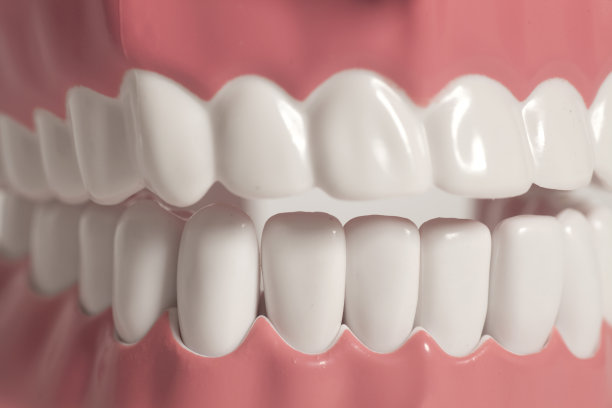Summary: The journey to maintaining optimal oral health often involves necessary procedures, including dental fillings. This article outlines essential precautions to ensure that your dental filling experience is both successful and comfortable. It highlights the importance of thorough preparation, effective communication with your dentist, post-procedure care, and regular follow-up appointments. By following these guidelines, not only will you have a smoother experience, but you will also contribute to long-term improvements in your oral health. Embracing these precautions can help minimize anxiety and promote a positive attitude toward dental care, leading to a healthier smile.
1. Importance of Pre-Filling Preparation

Before undergoing a dental filling, thorough preparation is crucial. This begins with understanding the procedure and addressing any questions or concerns you may have. A careful discussion with your dentist can clarify what to expect during the process, reducing anxiety and fostering a sense of control. Knowledge is power, and being aware of the steps involved can make a significant difference in your overall experience.
Another critical aspect of pre-filling preparation involves scheduling your appointment at a time when you can relax afterward. Opting for an appointment in the morning or early afternoon might allow you to avoid any post-procedure discomfort interfering with your daily responsibilities. This strategic planning can lead to a more pleasant experience overall.
Moreover, it is advisable to arrange for transportation if you are receiving sedation. This ensures that you won鈥檛 have to worry about traveling alone after the procedure, allowing you to focus solely on your recovery. Pre-filling preparation can ultimately set the stage for a successful dental experience.
2. Effective Communication with Your Dentist
Open communication with your dentist is fundamental to a positive dental filling experience. Share your medical history and inform them about any allergies or previous negative experiences with dental procedures. This information allows the dentist to customize the treatment plan to your needs, ensuring your safety and comfort.
Additionally, do not hesitate to express any anxieties or fears you may have regarding the filling process. Dentists are trained to manage patient anxiety and can offer solutions to make you feel more at ease. Techniques such as guided breathing or distraction methods can significantly alleviate stress during the procedure.
Lastly, ensure that you fully understand the aftercare instructions provided by your dentist. Clarifying any uncertainties will help you manage your recovery effectively and promote optimal healing. Good communication fosters a sense of partnership between you and your dentist, enhancing the overall quality of care you receive.
3. Post-Procedure Care for Enhanced Recovery
Once the dental filling is completed, proper post-procedure care is essential for recovery and oral health maintenance. Initially, it is advisable to avoid eating or drinking for at least two hours after the procedure to allow the filling to set properly. Consuming food too soon can loosen the filling and compromise its effectiveness.
Moreover, during the first few days post-filling, it is best to avoid extremely hot or cold foods and beverages, as the nerves in the treated area may still be sensitive. Gradually reintroducing regular foods can help you monitor any discomfort and ensure a smooth recovery.
Finally, pay attention to any signs of complications, such as prolonged pain or sensitivity. If you experience such symptoms, it is essential to contact your dentist promptly for a follow-up examination. Vigilant monitoring of your oral health can prevent further complications and keep your smile healthy.
4. Importance of Regular Follow-Up Appointments
After receiving a dental filling, scheduling regular follow-up appointments is critical in maintaining your oral health. These visits allow your dentist to monitor your filling and ensure that it continues to perform effectively. Consistent evaluations can catch any potential issues early before they escalate into more serious concerns.
Additionally, regular dental visits offer an opportunity for professional cleanings, which are vital for preventing further decay or damage to the teeth surrounding the filling. Professional cleanings also contribute to overall oral hygiene by removing plaque and tartar, leaving you with a healthier mouth.
Lastly, regular follow-ups serve as a reminder of the importance of oral care. These appointments reinforce the habit of maintaining good oral hygiene at home while providing valuable insights into any changes in your oral health. Staying committed to your dental care will lead to improved long-term outcomes.
Summary:
In conclusion, following essential precautions can significantly improve your dental filling experience and overall oral health. From careful pre-filling preparation to engaging effectively with your dentist and adhering to post-procedure care and regular follow-ups, each step plays a critical role in achieving a successful outcome.
Investing time and attention into these practices can transform your approach to dental care, resulting in a healthier and happier smile.
This article is compiled by Vickong Dental and the content is for reference only.
Vickong Dental
Vickong Dental is a large medical group established in Hong Kong in 2008 by professors from well-known medical universities in Guangdong and Hong Kong, as well as medical doctors from key national '985' universities (including Master's supervisors and senior professors). The chain of branches brings together expert dentists with PhDs and Master's degrees from Hong Kong and Mainland China, committed to providing high-quality dental treatment.
"Vickong Dental Practices the University Motto of 'Healing and Serving Society,' with a Stable Operation for Sixteen Years. It Has Been honored with Hong Kong Enterprise Leaders's Choice,' and is a Global Trusted Implant Center for the Nobel Implant System. Recommended by Hong Kong Metro Broadcast and Guangdong Television, it Serves Customers from Over Thirty Countries and Regions, Gaining the Trust and Favor of Citizens from the Guangdong-Hong Kong-Macau Greater Bay Area and Surrounding Cities.

Thousands of customers' unanimous praise
The most recognized and highly recommended dental service by customers in the Guangdong-Hong Kong-Macau Greater Bay Area
We Ensure You Receive Detailed Care and Attention Here
Hong Kong standards, Shenzhen prices, Your Trusted English-speaking dentists

Vickong Dental Medical-Grade Instrument Disinfection Process
Vickong Dental Medical-Grade Instrument Disinfection Process

Vickong Dental Chain: A Warm and Comfortable Environment for Treatment






Appointment Hours

Q&A
Why choose Vickong Dental?
Vickong Dental practices the university motto 「Medicine to Benefit Society」, with each branch bringing together highly qualified dentists with doctoral and master’s degrees from Hong Kong and the Mainland, and has maintained seventeen years of steady operation。Recipient of 「2024 Hong Kong Enterprise Leaders Brand」, 「2025 Hong Kong Enterprise Leaders Brand」, a Nobel Biocare Global Trusted Implant Center, and a brand recommended by Metro Radio Hong Kong and Guangdong TV。
To date, we have served customers from more than thirty countries and regions,earning exceptionally high word-of-mouth recognition and trusted recommendations from residents across the Guangdong-Hong Kong-Macao Greater Bay Area and surrounding cities
We have eight major branches in Zhuhai、Shenzhen,and a consultation and service assurance center in Hong Kong,so you can book a free consultation at any time for any questions,which is very reassuring.
If I do not accept the quotation after the CT scan, will I be charged??
No! As long as the actual treatment has not started, you will not be charged any fees.
Will there be any additional charges during the treatment process?
No, there won’t be any additional charges. Before treatment begins, we will clearly explain the treatment plan and its corresponding fees. Only after the patient agrees and signs the consent form will we proceed with the dental service.
Can I pay in Hong Kong dollars?
Yes. Vickong Dental accepts payment in Hong Kong dollars. The amount will be converted based on the exchange rate of the day, and the applicable rate will be clearly communicated to you in advance.
Can I reschedule my appointment at any time?
Yes. Please contact us via **WeChat** or **WhatsApp** as early as possible, providing your original appointment time and details, along with your preferred new date and time slot for rescheduling.













